How was this content?
How Women@Startups is building a community of women founders
The concept of community—bringing people with common interests together (or people together at all)—took on a whole new meaning when the COVID-19 pandemic hit in 2020. For the founders of Women@Startups, Sree Singaraju and Priya Koratkar, the pandemic highlighted an even greater need to bring together one particular community: women startup founders.
Founded in 2020, Women@Startups aims to provide visibility and voice to the challenges that women founders and women in technology face. The group intends to create a sense of belonging and support for women in tech, working to address the inequities and challenges faced by women in the industry. Through employee and customer support functions, the organization provides coaching, leadership development support, and connections to organizations that support funding.
Crafting an equitable future for women in tech

As working mothers from immigrant backgrounds, Sree and Priya had a taste of isolation prior to the national mandate. Before joining AWS, both women had years of experience in typically male-dominated industries, Sree in finance and Priya in the tech sector.
“At some point in our careers, we realized that we were, at many times, the only women in the room and the only people of color in the room. And that formed a lot of our perspectives of what an equitable future for women in tech should look like,” Priya says. “Work-life balance conversations or conversations around equity in the workplace were nonexistent.”
It was the founders’ roles at AWS, as Solutions Architect and Sales Leader, that gave them the tools to expand these ideas into what would become Women@Startups. As Priya says, “We both came into this with the understanding that if we are now in a leadership position in an organization like AWS, which is on the forefront of helping startups, we have a moral responsibility to make a way and path for others who are coming in.”
Engaging women founders in open conversation
Year one at Women@Startups was not without its challenges. But the organization chose to harness these obstacles, instead focusing on an initial goal of creating awareness. Priya says: “year one was a year of learning, a year of connection, and a year of building community.” In determining strategy, “we focused on a lot of these conversations about what are some of the challenges that we are facing as employees. What are the challenges that our customers who are women founders and underrepresented founders focused on?”

With these challenges in mind, the first initiative from Women@Startups, re:Connect, was born. re:Connect connects a small group of women leaders in candid, open conversation. According to Sree, members discussed topics such as, “I’m a working mother, and I’m struggling right now with COVID because my kids are at home and I’m figuring out how to strike a work-life balance.” It was the answers that formed the basis of what the future programs at Women@Startups would look like. “We tried to make it as actionable and as practical as possible. So, we selected leaders who were not afraid to speak out the truth and be real with the candidates and with the community here,” Sree says.
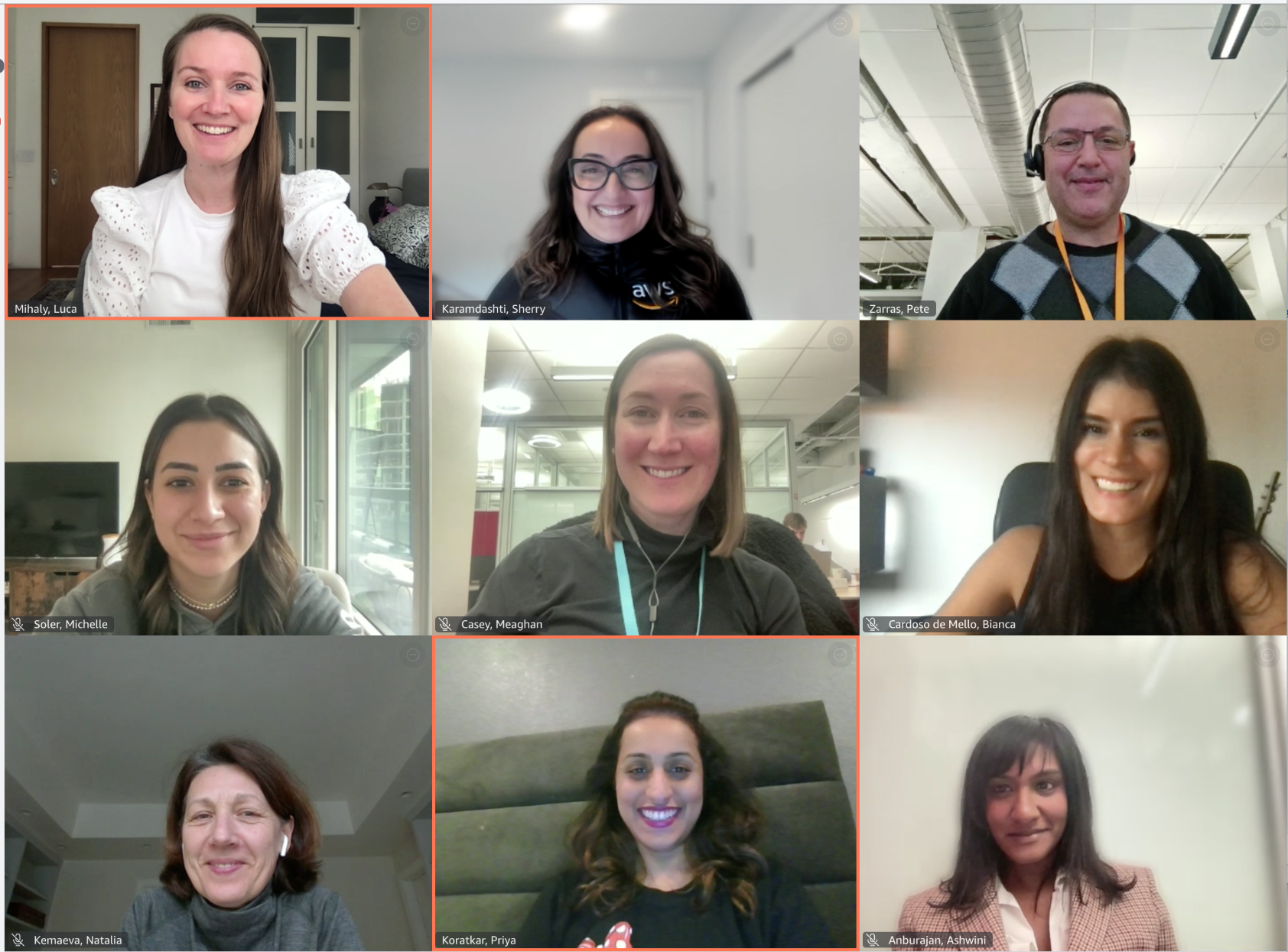
Creating a unique perspective for an employee resource group
Employee Resource Groups (ERGs) like Women@Startups are not new at Amazon. Amazon has 13 ERGs that unite employees with shared identities across the globe. Groups such as “Body Positive Peers” and “Indigenous at Amazon” support each other and promote diversity and inclusion within the workplace. While ERGs by nature tend to be internally focused, Women@Startups puts their focus on both the internal and external to cater to their customers and provide a unique perspective. “Ours is an ERG that has two customers that we serve: one is our internal employee group, and the other is our customers, the female startup founders. That’s the key differentiator between any other ERG and us,” Priya says.
Today, Women@Startups has grown into a global organization with over 170 team members and a substantial global presences. They have secured sponsors who serve as leaders across regions to help expand and bring visibility to the challenges that women founders face, including Howard Wright, VP of AWS for Startups; Paul Duffy, North American (NAMER) solutions architect leader; Sherry Karamdashti, NAMER sales director; Kellen O’Connor, Europe, Middle East, and Africa (EMEA) sales director; and Gaurav Arora, Asia-Pacific (APJ) sales director.
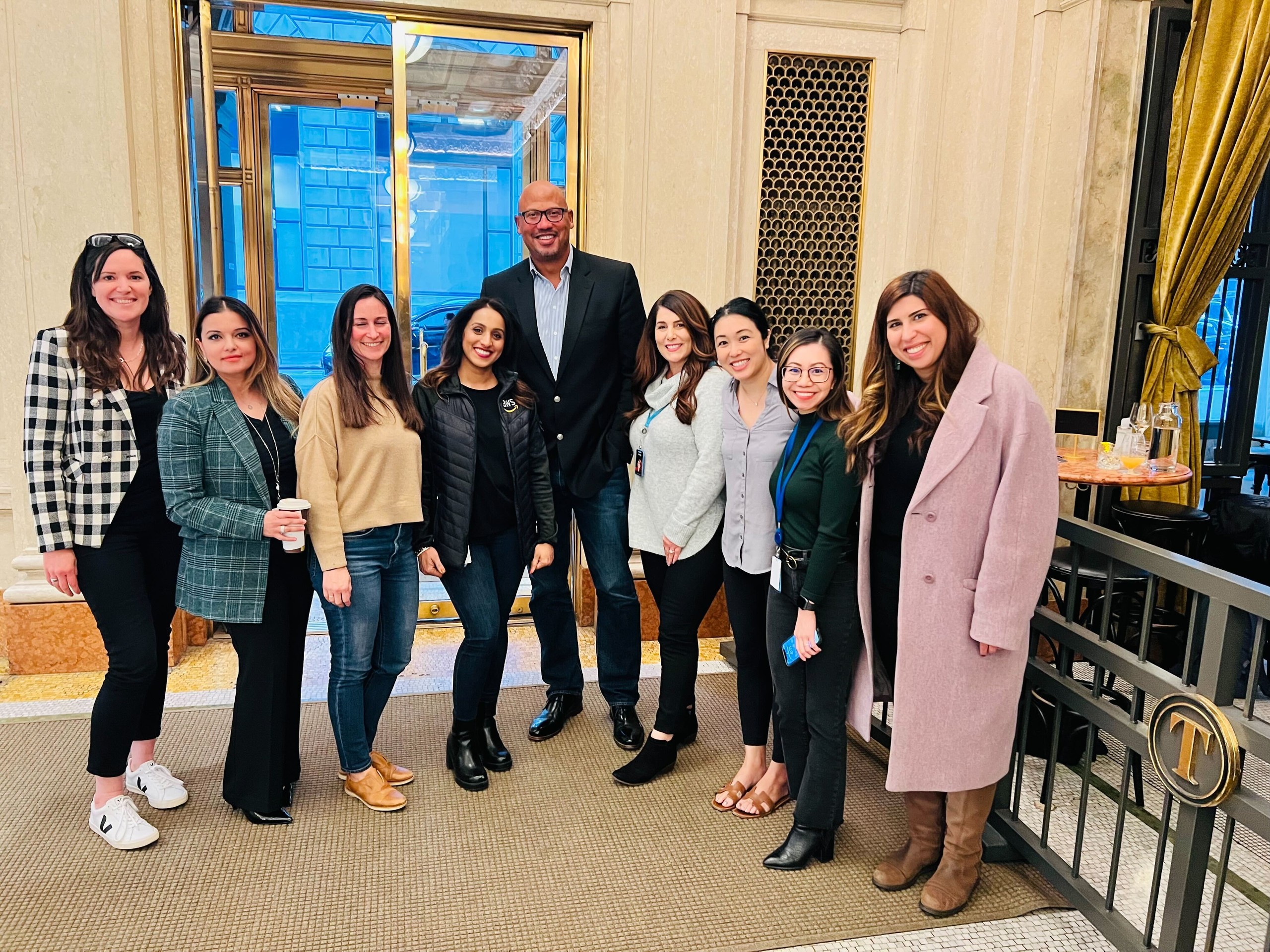
With this growth, Women@Startups has stayed true to their core values, while expanding their reach. “Our goal is to make sure that we always are mindful about creating a pipeline of diverse candidates, so we can have a wider pie. Once we have those employees in, we ask: how do we continue to make sure they are successful in their environment and that they have the right tools to construct and grow?” Priya says.
Externally, on the customer side, Women@Startups looks for opportunities to make connections with organizations that are supporting women founders from a funding perspective. “We like to make those introductions so that we are not just looking at coaching opportunities for our women founders, but actual practical application of how they can be connected with the right folks who could give them funding.”
As leaders, Priya and Sree go by the “Amazonian” leadership principles: think big and invent and simplify. These tenets form the basis for how the team thinks about future growth. “We really encourage every member to come with a think-big strategy and a long-term strategy of the work that they’re doing,” Priya says.
Focusing on the future
The pair is certainly not done; with women founders, funding bias remains prevalent. In 2022, women-founded businesses only raised 1.9% of all venture capital funds, a drop from 2021. As Sree says, this forms the focus of the future for the organization: “Last year, we learned some of the challenges of women in tech. This year, we really want to dive deep and see what we can do in the tech funding space.”
Priya agrees: “We want AWS for Startups to be a destination for all women to grow and build, whether that is internal, as employees, or any woman-led startup. Any startup should think of AWS as their partner and as the ecosystem that they have for them to be really successful. AWS for Startups has the understanding and the empathy to support them in the ways they need.”
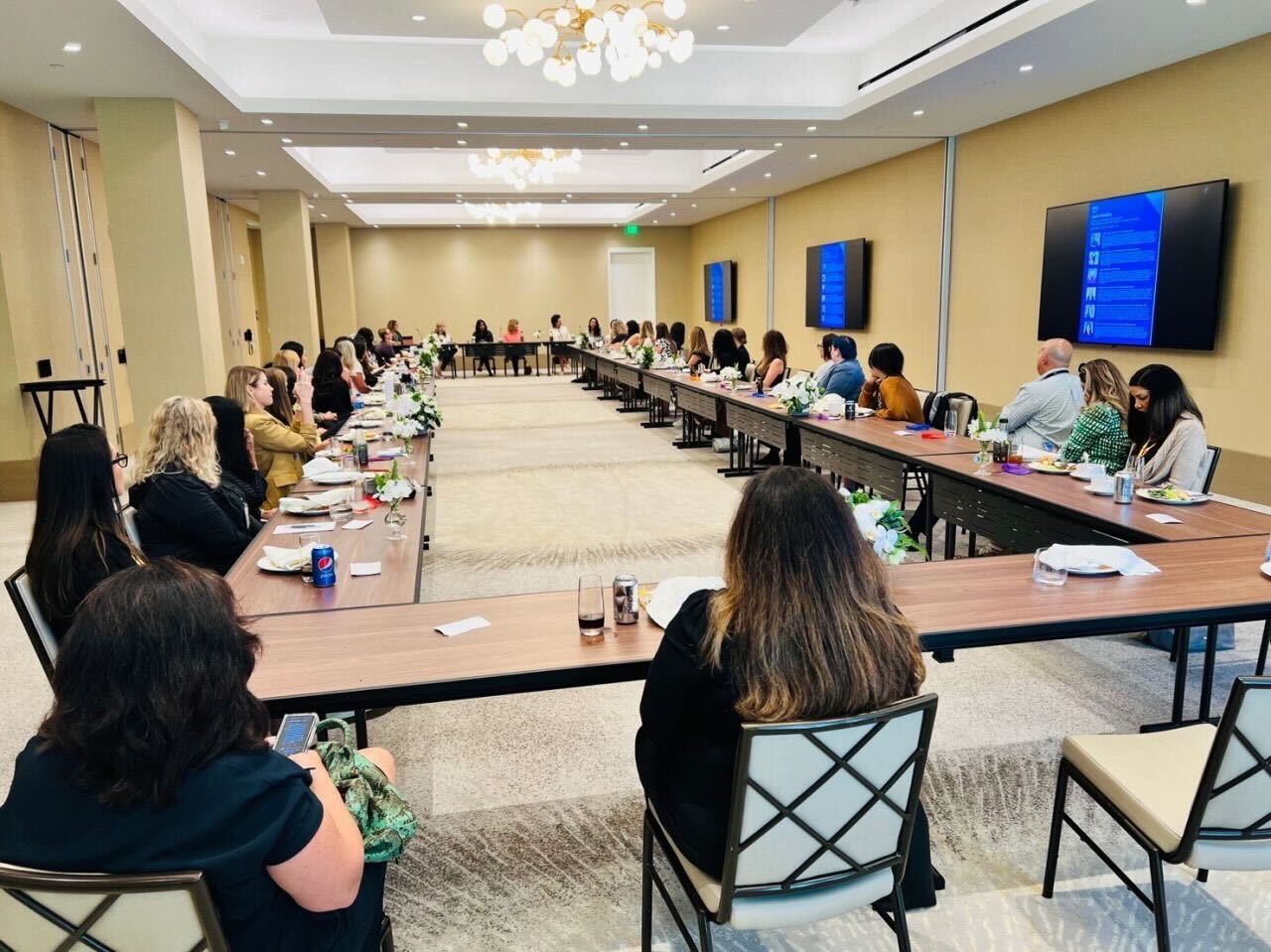
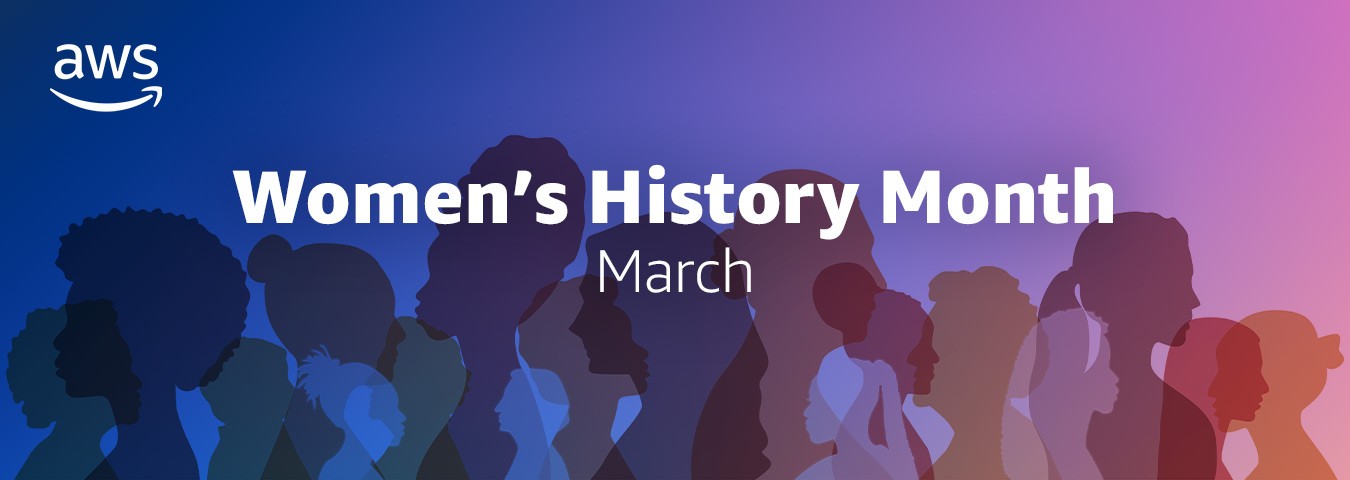
Explore more content that celebrates the achievements of women in tech, such a
- AWS Startups Twitter stories that highlight amazing women in tech
- Celebrating Women in Tech with Panzura CEO Jill Stelfox
- Demo Day for AWS Impact Accelerator Women Founders Cohort
- Women founders Q&A – Learn how they’re impacting their communities, industries, and beyond
- Meet three women who make startup journeys smoother
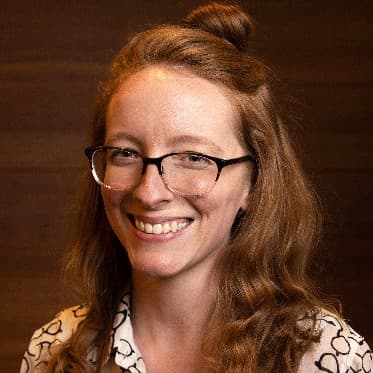
Bonnie McClure
Bonnie is an editor specializing in creating accessible, engaging content for all audiences and platforms. She is dedicated to delivering comprehensive editorial guidance to provide a seamless user experience. When she's not advocating for the Oxford comma, you can find her spending time with her two large dogs, practicing her sewing skills, or testing out new recipes in the kitchen.
How was this content?